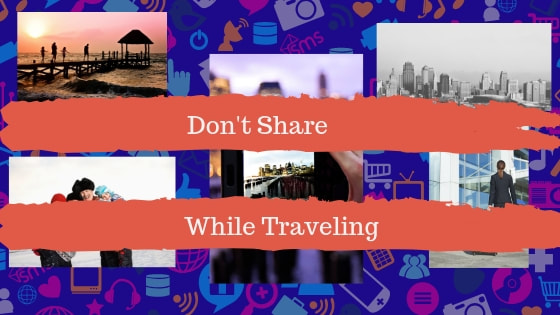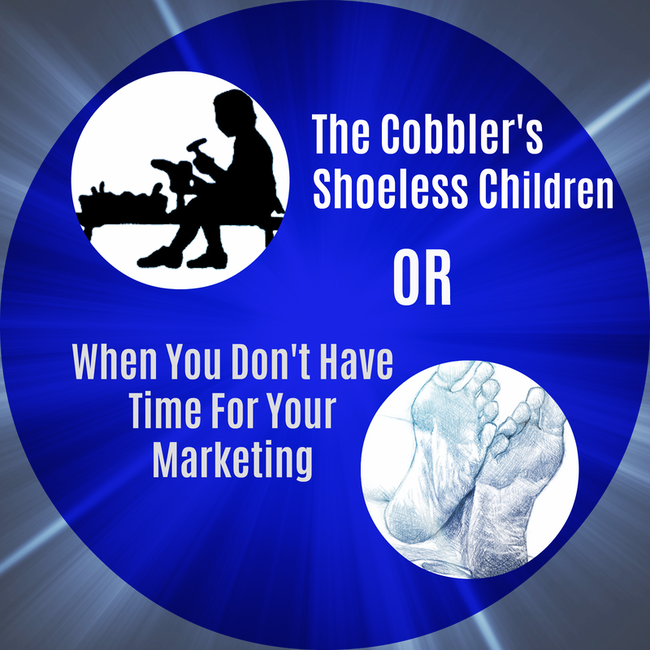|
Not too long ago, I joined some business acquaintances for lunch, which was a novel experience after 2020. One of them was new to our group, and when introductions came around to me, I explained that I handle social media marketing. Our new acquaintance said that they were just starting to use social media, and had someone showing them how to work with Facebook. Then proceeded to say, “But I don't do Twitter.”
We were all a little curious at this declaration, and someone beat me to the question of, “Why?” The reply was, “I don't understand tweets, so I don't use it.” The conversation moved on. However, it reminded me of the times I have heard similar comments from business acquaintances, and some clients. In terms of personal use that is fair enough, but for businesses they could be cutting themselves off from potential clients. Granted, you don't have to be on every social media site, but there are some that have a wide demographic of users; plus, many have an impact on the search engines. Five examples are: Google, Facebook, Twitter, Pinterest, and Instagram. I will also be the first to acknowledge that for a business owner it can be overwhelming to learn the various social media sites, and then to try to keep up with them. That is where a dedicated social media manager is very useful. What is my point to all of this? To any business owner, I would say, “Don’t reject outright a social media platform because it looks confusing, or it’s not a personal favorite.” You never know, it could be a perspective client’s favorite platform.
0 Comments
There is usually a lot of excitement about going on vacation, or even on a business trip, and if the trip goes well, there are new experiences to be discussed. And up to the advent of cell phones you usually had to wait till you got home to tell friends and family about the experience. And to show them your photographs.
Of course, now you can share each moment of a trip in real time with friends and family, and sometimes, thieves and scammers. The problem is that we are creatures of habit. We have become to depend on our smartphones for just about everything - from communicating to banking. And we have become accustomed to the gratification of an nearly instant response when we post something. It is just like having your friends there. Now, however, that can include people you don't really know. "Keep it secret" is the best advice, and here are some ways to do so: 1. If you are traveling don't announce it on social media, or a blog, and if you need travel advice, ask it privately. And if you can't contain yourself in your excitement please don't put dates and travel details. 2. It is actually advised to have a separate phone specifically for travel, which only has minimal personal data on it. If you cannot do this make sure that your security settings on your banking, and social sites are updated. 3. Try to avoid using public Wi-fi. If you need to a public hotspot look for secured public Wi-Fi that requires a password. This Tales Off Road article offers a excellent overview of pocket Wi-Fi devices, which would help you avoid using public Wi-Fi. 4. Turn off anything to do with location-identification so that it doesn't appear in your posts, and set your Facebook for Timeline Review in case you are tagged in a travel photo. 5. Do not share flight information. This type of information can be used for anything from virtual kidnappings to social engineering that targets businesses. 6. If it is a family trip make sure to talk to your children about online safety, and make sure the security settings on their phones are updated. 7. Don't post or "check-in" while on the vacation. 8. Save the Sharing till you get home! No matter how excited you are save all of those photos and comments till you arrive home. If that seems overwhelming use a social media scheduler for Twitter. Facebook no longer allows third-party apps to post to personal pages. And I am guessing a few are saying, "But I have my privacy and security settings locked down. Only friends can see it." That goes back to the question of "how well do you know all of your social media friends?" While hopefully this is a very rare case you can read here of a family whose home was burglarized by some of their daughter's Facebook friends. When traveling pretend like it's the "old days," and save your photographs and fond memories till you come home. Resources: Security Intelligence's "Five Tips to Stay Safe on Social Media While Traveling" Nationwide's "7 Social Media Vacation Safety Tips" Traveling with Stories' "Social Media Travel Safety Tips." I will fully admitted that I am still the cobbler with the shoeless children, since I first wrote this blog in 2018. As usual I became busy, and have not paid much attention to my own marketing. This is a rather sad admittance from a social media marketer, particularly since I know that consistency is the key.
Its not that I wasn't aware of how poorly it looked to have my business social media sitting unused. Yet, its hard to worry about my own when I am making sure my clients' marketing is taken care of. What made me sit back and realize that I needed to make time for my own marketing, and strengthen my strategy, is that I began getting calls from people. And these people were telling me that they were finding me from Facebook and Google searches. It is time for me to practice what I preach - that now my reputation is laid bare online. And it's not just a problem for me, but for most businesses that don't have an actual marketing department to monitor their online presence. I have had many people say, "I get my clients by word of mouth," or "I'm in good networking groups." There is no arguing that knowing someone, or being referred, gives you a stronger bond with the perspective client. This usually is how I come by my clients. However, this is ignoring those prospective clients who have a problem to solve, and they are searching. So if you don't have a sign on that road they never are going to know you. Or worse yet, get a damaged first impression because you aren't showing off your products or skills well. Now, when people want to learn about about a business, they have powerful research tools in their phone. If say, they wanted a plumber, they choose from the search the ones that look promising, then they take a look at the websites, and they also do a quick search of the review sites, such as Google, Yelp, and Facebook. If they find an active Facebook page they will also spend time seeing what is said, and being said, about the business. I also have had it said to me, "But I Have A Website!" Websites are important as they provide an anchor for your online presence, and they allow for a fuller description of what you do. However, websites are static. Social media gives a greater feel for what the business is like. So if a prospective client is having to decide between comparable businesses they are more than likely to go to one that is vibrant and active. Its definitely time for me to get some shoes on - and keep them on!  When someone passes those nearest know that friends and business associates will be grieving. But in our ever expanding world that is fueled by the internet there are now virtual friends out there. Maybe the deceased never met these people. Maybe these folks live a continent away. But they took pleasure in a friendly word, the funny posts, or the insightful blogs. Then - suddenly there is silence. These virtual friends were as much legitimate acquaintances as the folks in the community, and the deceased will be just as missed. A recent death brought this home to me, though the deceased was a 19-year old dog. Through Bark N’ Rest’s Facebook postings many of us have learned the stories, and learned to love, the permanent residents of this unique shelter. Sugar Bear was elderly dog whose story many of us had followed. And when her age caught up with her virtual friends shared a few of her last hours of being spoiled by the family, and then grieved with the family when Sugar Bear passed on. We learn the stories of our internet friends. We pray for them if they are ill, and we offer our support during their battles. And we grief at the times when those battles are lost. Notices, or memorial pages, are much like the obituary. It answers the question of what happened. Of why there was suddenly just silence. And allows for a means of closure, and the ability to celebrate a life. Even if it was a life shared across the internet. Social Media and Death Part 2 - Dealing With The Logistics of the Internet, Social Media And Death.11/24/2014 No matter whether family is having to go through personal effects, or handling bills, or dealing with computer accounts, many find it very hard to look upon the reminder of a life now gone. Often times the reaction is to deactivate the email and various accounts. However, what many don't realize is that in some cases deactivation is not actually deleting an account, and can be reversed.
The various social media platforms now require prove of death, and relationship, before accounts can be managed. However, they do offer various ways of handling the accounts. Facebook requires the survivors to contact them. They will never give out account information, but after proving that a death has taken place, and that you are the representative, you can request one of three actions. One is to request that the site be memorialized; this means that people can add to the timeline, and messages, but other than that nothing else can be changed. The second action is to deactivate; this is a reversible action, and the family can later decide to memorialize. The last action is to delete the account, and this is a permanent action. Twitter requires all documentation to be mailed in. They will not give out account information, but with the correct documentation they will deactivate the account. Google always seems to be thinking ahead, and offers the "Inactive Account Manager" so that you can decide how your many Google accounts are to be handled. You can decide if trusted contacts will have access to your accounts, or if your email and data will be deleted after an allotted amount of time. Pinterest requires full documentation of a death, and relationship, to deactivate an account. The family member needs to first send an email to their customer support. Linkedin requires an online form to remove a member's profile, along with proper paperwork. Instagram and Tumblr require you to contact their support emails, and representatives will then contact the family with the needed requirements. Many funeral homes are now creating checklists that can be used to make sure accounts have been dealt with. These same checklists can help with pre-planning, and provide the family with account information that allows for easier handling of the accounts. Still many would think that this is trivial compared to more pressing concerns of final arrangements, and financial concerns. However, internet accounts should be considered just as vital, since inactive accounts can be gateways to identity theft, and that is the last thing a family needs as they try to deal with the intricacies of death. Even more pressing is when the deceased was a business owner. Whether the business has employees, or the business owner was the only staff, those accounts are vulnerable. For businesses, particularly businesses with one or two employees, it is necessary to have a trusted associate have your sign-in information. If the business is going to continue you will not want accounts, such as Twitter, deactivated. Granted not many of us want to consider the hour of our demise, but most are coming to realize that funeral pre-planning is a good way to ease the way for our survivors, or to at least make sure that our final wishes are carried out. The same can be said with internet pre-planning. Make sure you have accounts and passwords listed somewhere, and then make sure that list is kept with your executor or funeral home. Also make sure to periodically update those lists, since we always end up with new accounts, or password changes. Facebook, Twitter, Google +, and Pinterest accounts are not normally high on the list of priorities when you are considering your final wishes. However, social media now effects every part of our lives and businesses, and in a three part series I will look at how it can impact the survivors.
I will grant that as a discussion topic this was far from my thoughts; at least not until I found myself reading a Facebook memorial service for an acquaintance. She and I had only reconnected on social media a few months past, and not soon after I noted a post where she said she was having a minor medical procedure done. Then came a flurry of sympathy posts for her passing, and her sister turned the deceased's Facebook page into a memorial site. The end result of this was I ended up interviewing the owners of Butler Funeral Home about how the funeral industry was handling social media. The first thing that Mr. Butler said was that whatever the medium used the human impulse to share news, and to give support, doesn't change. However, that with social media the spread of the news has sped up. He mentioned that this is something that families might want to take into consideration when using social media to announce a passing. When death happens there is a desperate need to reach out to the living, and in telling of the death to try to deal with the reality. Smart phones, laptops, and tablets make it far easier to reach out to friends and acquaintances, but the speed of communication sometimes out runs more traditional means. Mr. Butler said they have heard of families who heard about a death on Facebook before the official call came. The speed of interaction can also be a blessing for those directly involved, because it does allow of nearly instantaneous outpouring of sympathy, and help. It is also a way to share out funeral arrangements, and funeral homes are helping with this by linking obituaries to their social media. The Facebook accounts, and other social media, can also offer a place to share memories, which is particularly helpful for friends and acquaintances that can't be there in person. And if desired that page can be turned into a permanent tribute to the deceased. Recently I was delighted to learn that White Fox Social Media would be working for Dankor Development Company, and Central Illinois Ventures, on the new Metropolitan Place, and Joan Reilly Smith Cultural Center. Mr. Dan Mulcahy and Mr. Irv Smith are busy renovating the First United Methodist Church in downtown Springfield, Il into the Metropolitan Place. My participation was thanks to ZG Worldwide, and it was also thanks to Mr. Mulcahy, Mr. Smith, and Mr. Soliwon that ZG Worldwide Associates were able to have front row seats (or at least curb side on Capitol Avenue) for the 4th of July fireworks. To describe the weather for the evening as "perfect" would have been an understatement. And I was able to indulge in one of my newer pastimes of photography, and had challenged myself to try and get photographs of the fireworks. In the course of several conversations with business associates, and friends, I have been reminded of one of the often unrecognized differences in social media usage. There are two different cultures when it comes to business pages and personal pages. But many people are unaware of these cultures. While we were discussing her unused facebook business page an acquaintance said, "Well, we won't be pursuing social media. I have known too many friends and family who get really upset when trying to decide to "unfriend" someone. It just takes up time."
And amongst friends, particularly when I have commented on part of a post on my personal page, I am asked, "Haven't you been following the discussion?" Usually the answer is, "no." Not because I don't care about what is happening with my friends, but because my main social media time is for my business. Now I will grant that the line can blur in social media, particularly if business associates are following your personal page. And friends are following your business. Yet, there are still differences in the cultures. And I compare it to the difference between a business lunch, and a cookout. The first difference obviously are the topics. At a business lunch the discussion is more focused. At a leisurely cookout the topics could flow all over the board. Behavior is another. Professionalism normally holds sway over a business luncheon with the associates behaving with a certain level of decorum. At a cookout you might kick back, and relax. Or show your true feelings. Transparency is one of the keywords of social media. So business people do need to be more aware of what they put on their personal pages, and to whom the post goes to when you write something. There are ways to post to only close friends, and to avoid seeing postings from "friends" that annoy you, even if you don't want to "unfriend" them. With business pages you are focusing on the story, and brand, you want to present to the public, and that is with the full understanding that what is posted is public. If personally a business owner doesn't want to be involved with social media there are ways to make personal pages fairly private. So there is no reason to consider social media just an exercise in a high school mindset of "they don't like me anymore." You can go to the business lunch, but if you want, you can turn down the invitation to the cookout. I'm going to say up front that I love when a business hires me to handle their social media marketing; not only because of the business itself, but the chance to design a program that works for my client. However, before any business takes a step towards social media as a marketing tool, whether on their own, or letting someone else handle it, there are new developments they need to take into consideration.
Not that long ago a Facebook business page offered a great opportunity for free marketing, and everyone had heard the stories of the pages that became phenomena in their own right. And the common cry was, "You have to have a Facebook page!" And that was what many businesses did, particularly the smaller ones. Some of those pages are now sad, empty virtual store fronts, but other businesses have dutifully posted to their pages. Maybe not every day, maybe not every week, but they posted. Unfortunately that faithfulness isn't offering the rewards it once did, and in truth hasn't in a while. What has been happening is that Facebook has truly become a corporation, and has been decreasing its "organic reach" (how your free posts appear in newsfeeds). And they are doing so again. Rumor has it that the changes is so that businesses will buy Facebook advertising, or buy "likes" to boost a specific post, and there is a strong likelihood that rumor is true. It has always been true that if you aren't active on Facebook (at least 3 times a week) that your posts would get bumped from newsfeeds by more active pages. This also requires having "sharing" and "liking" occurring. Now this is even more so. The truth be told, you can't just concentrate on Facebook. All of the social media platforms are intertwined. So to have it worth your while you need steady activity on Twitter, Google +, and Linkedin (at minimum). We won't even get into the power of original content (blogs) or YouTube. This is where you need to decide whether you can commit to social media. Small businesses always have had challenges when it comes to marketing. They try very hard to stick to flyers and business cards they can do themselves. Maybe get a free website up. And try to do a bit with Facebook. However there comes a time when you have to go to a printer, or get professionally done business cards, and its the same with social media. You have to ask yourself whether you have the money, or the time, to make it work for you? Most have a passing knowledge of the story of the Minotaur and the Labyrinth, and how Theseus used a ball of the thread to not only find his way to the beast, but the way out. For the business owner computers, and all that is required, can bear a resemblance to the Labyrinth (though some might say the beast). In this day a business owner, new or old, has to come into the realm of the computer.
Recently I heard a speaker saying that even the days of desktops are fading, and the realm of the tablet, and other devices, will hold sway. It even made my head ache some. At the most basic, though, your records are on computers, or your cash register is computerized. And if you want to advertise you will need to at least have a website, and consider social media. Granted my realm is social media, but before I can set up a client on social media we often have to untangle their skein. I have also heard from acquaintances in web design that they not only get to untangle these skeins, but often watch, with great bemusement, as people tangle their own skeins. Then want someone to find them!! The basic scenario often runs something along these lines. After much consideration the store owner decides that they need a website, and they shop around a little. Already they are in the labyrinth without a light as sales people rattle off mysterious terms, and quote frightening prices. Then, by a minor miracle, they hear that a friend's college age child knows how to build a website, and so for the price of a host, and a domain name, they have a website!! But their web designer soon disappears, and the store owner hasn't kept any of the passwords handy. "Why do I need those? I have somebody handling the site?" Worse yet they don't know how to renew their domain name, or some other company owns the domain name. Either way it is a crisis, because your domain name can be bought by someone else, or you will be paying a exorbitant fee to get it back. And even if they have managed to avoid all of that they may well have a website that isn't easy to add on to, because it is on a limited platform. So it cannot grow with you business, and it is not easy to keep up with the growing demands of the internet, such as social media and blogging. As a business owner you have to be aware of stock, sales, supplies, and billing. And keeping track of your computer needs is no different. Consider at the beginning of any computer venture. 1. Will this site be easily expanded? 2. Will my web designer be there for me for the long term? 3. Do I have control of my domain name? 4. Have I given a lot of thought to what I want to say on my website, and have talked over the best optimization of word usage and order? (Working on search optimization at the beginning will save you money later). 5. Do I have all necessary phone numbers and emails for emergencies? 6. What is the best way to keep a log of all of my passwords; for both the website and the social media? So keep a firm hold on your skein, and play out the thread carefully so you can find your way through the Labyrinth. |
Cathy Mosley
Cathy Mosley brings her 26 years of storytelling and writing experience to the realm of Social Media. To help small businesses. Archives
July 2021
Categories
All
|







 RSS Feed
RSS Feed

